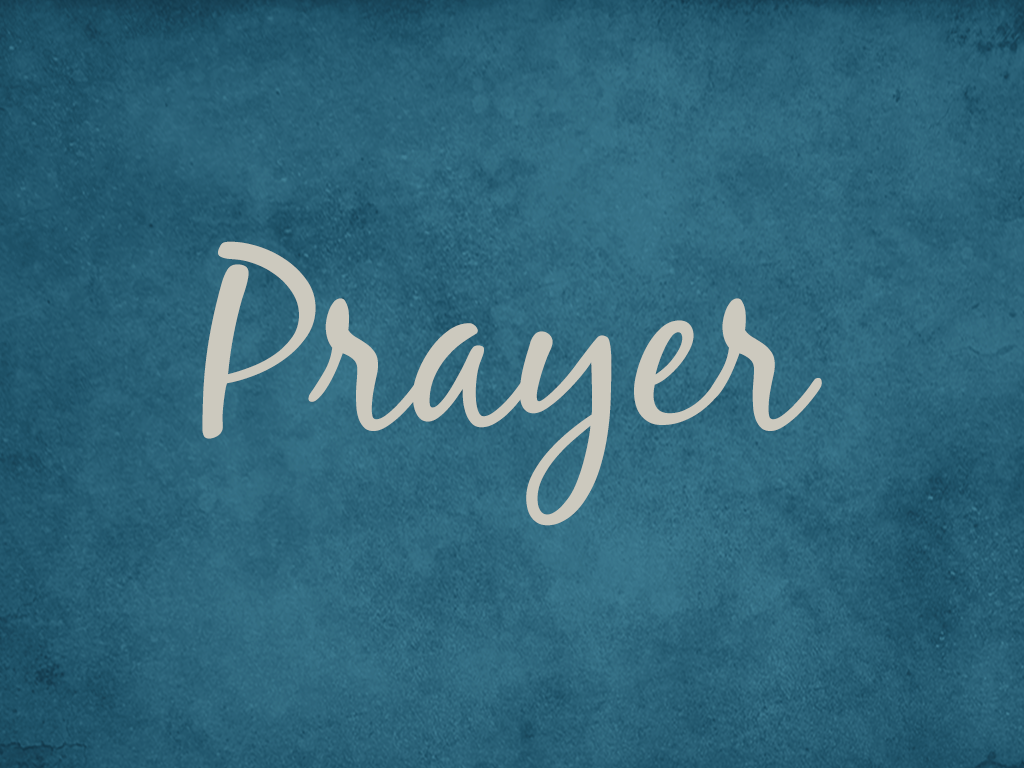


[Recently], news broke that the White House officially rescinded President Obama’s executive order regarding transgenderism in public schools. This is a good decision that corrects outrageous and coercive directives. Children should not be turned into pawns of culture war experimentation. As a conservative evangelical, I’m glad to see this action.
At the same time, the cultural conversation on gender identity issues requires more than good policy. It demands a gospel-centered response from the church.
Ultimately, the transgender question is about more than just sex. It’s about what it means to be human. Poet Wendell Berry responded to techno-utopian scientism with the observation that civilization must decide whether we see persons as creatures or as machines. If we are creatures, he argued, then we have purpose and meaning, but also limits. If we see ourselves, and the world around us, as a machine, then we believe the Faustian myth of our own limitless power to recreate ourselves.
This is, it seems to me, the question at the heart of the transgender controversy. Are we created, as both the Hebrew Scriptures and Jesus put it, “male and female,” from the beginning or are these categories arbitrary and self-willed? Do our bodies, and our sexes, represent something of who we were designed to be, and thus impose limits on our ability to recreate ourselves?
The Sexual Revolution has always whispered promises of this kind of godlike self-autonomy. After a generation of no-fault divorce, cohabitation, ubiquitous pornography, and the cultural unhinging of sex from marriage and marriage from childbearing, it only seems inevitable that Western culture is now decoupling sexuality from even its most basic reality: gender. If human sexuality exists solely for our self-actualization and satisfaction, then it makes no sense to impose restrictions based on something as seemingly arbitrary as gender.
This, ultimately, won’t work. There are good reasons to put boys and girls in different bathrooms and locker rooms and sometimes sports teams, reasons that don’t impugn the dignity of people but uphold it. Sex-differentiated bathrooms and sports teams and dormitories for men and women aren’t the equivalent of, say, a terrorist Jim Crow state unnaturally forcing people apart based on a fiction, useful to the powerful, that skin color is about superiority and inferiority. Every human being knows that there are important, and necessary, differences between men and women. Without such recognition, women are harmed and men are coarsened.
Moreover, the move here toward severing self-identity from biological reality will hardly stop at “gender.” If anything, there’s much more of a case to be made that one can feel to be a different age than one’s doctor’s exam or birth certificate would show. That’s relatively indifferent if all that this means is “You’re only as old as you feel” or “I’m a Millennial trapped in a Gen-X body.” It’s something else entirely if chronological self-identity is mandated for military service or the drinking age or the age of consent. People and neighborhoods and nations and cultures cannot live this way.
So how should we as Christians respond?
First of all, we should never mock or belittle those suffering gender identity disorders. These are our neighbors to be respected and served, not freaks to be despised. They feel alienated from their identities as men or women and are seeking a solution to that in self-display or in surgery or in pumping their bodies with the other sex’s hormones. In a fallen universe, all of us are alienated, in some way, from who we were designed to be. That alienation manifests itself in different ways in different people.
Christian congregations that seek to be faithful to the gospel must teach what’s been handed down to us, that our maleness and femaleness points us to an even deeper reality, to the unity and complementarity of Christ and the church. A rejection of the goodness of those creational realities then is a revolt against God’s lordship, and against the picture of the gospel that God had embedded in the creation.
But this also means that we will love and be patient with those who feel alienated from their created identities. We must recognize that some in our churches will face a long road of learning what it means to live as God created them to be, as male or female. That sort of long, slow, plodding and sometimes painful obedience is part of what Jesus said would be true of every believer: the bearing of a cross. That cross-bearing reminds us that God doesn’t receive us because of our own effort but because God reconciled us to himself through the life, death, and resurrection of Jesus.
Second, we must bear witness to the goodness of what it means to live as creatures, not as self-defining gods and goddesses. God created us as human, and within humanity as male and female (Gen. 1:27). We are all sinners, so we chafe against having ourselves defined by a Creator, and not by ourselves or our ideologies. Our nakedness shames us, because our physical difference reminds us that we are not self-contained. Man needs woman, and woman needs man.
We must also resist the temptation to buy into the Sexual Revolution’s narrative. I don’t just mean that we accommodate ourselves to the sins and heresies of the movement, although that’s always a danger too. I mean the danger is that we assume that the Sexual Revolution will always be triumphant, progressing upward and onward. To assume such is to assume that the Sexual Revolution will be able to keep its promises. It can’t. It never has. If Christians see ourselves as people who are “losing” a culture rather than people who have been sent on a mission to a culture, we will be outraged and hopeless instead of compassionate and convictional. If we do not love our mission field, we will have nothing to say to it.
We should stand against any bullying of kids who different from other children, for whatever reason. Children with gender identity issues are often harassed and marginalized. They should be loved and protected. Schools can do this without upending all gender categories. More importantly, churches and Christians can do this. We should hate the bullying of our neighbors, especially children, even more than the outside world hates it.
We Christians believe that all of us are sinners, and that none of us are freaks. We conclude that all of us are called to repentance, and part of what repentance means is to receive the gender with which God created us, even when that’s difficult. We must affirm that God loves all persons, and that the gospel is good news for repentant prodigal sons and daughters, including for those who have trouble figuring out which is which.
_______________
Portions of this article were published previously.
I Asked the Lord That I Might Grow
The hymn starts off with a prayer: “I asked the Lord that I might grow in faith, and love, and every grace.” We’ve all been there, haven’t we?
“Lord, please increase my faith.”
“Help me to love You and others more.”
“God, I want to experience more of your grace.”
We recognize that prayer because we’ve all prayed it ourselves in various ways. But then (in our hymn text) we find a twist. God answered the prayer, “but it has been in such a way as almost drove me to despair.”
I don’t know about you, but singing the word “despair” on a Sunday morning still gives me a bit of a shock. And especially so when I realize that I’m singing about how it is the Lord who has “driven” me to that place (verse 2).
In praying that prayer for Him to increase my faith, I was hoping (verse 3) that He would “at once” answer my request by helping me resist sin and give me peace and rest in my heart. But no; it would not be so simple. Instead of this (verse 4), He made me more aware of my sin and depravity. And to top it off, He even let the enemy with “all the angry powers of Hell” attack me!
This was not what I had wanted at all. Now, instead of some great joy-filled plateau of a spiritual Instagram-worthy sunrise, I’m feeling guilty and discouraged. I’m alone except for those who would attack and accuse me. I might even say – despite the “faith” I claim to have – that God Himself was purposefully aggravating me (verse 5), destroying the image I had in my head of my great life of faith, and basically knocking me down.
“Why is this happening to me?” I cried (verse 6). “I know You’re sovereign over my trials, but this is ridiculous!” What is going on?
Perhaps it strikes you as odd that it is at this point that God finally speaks.
Wouldn’t you think I would hear His voice when I was at my high point, praying for increased faith and love? In this hymn, God doesn’t answer there. No; at least, not in the way we typically think. He answers when I get to the point of feeling like a stupid worm being hunted to death.
An aside – this is pretty strong language for the average Sunday morning. It feels weird to sing, “Are You going to pursue me, someone who is just a worm, to death?” But the language is actually fairly typical when you compare it to the Psalms.
So how does God answer when He finally speaks? Verses 6-7: “This is how I answer these prayers, My child: I use these trials to cure you of self and pride, so that you would cast aside your schemes of earthly joy and seek Me as your all in all.”
That’s quite a lesson in seven short stanzas.
So this first old hymn provided an illustration for us of how God answers prayer and builds up our faith through trials. These trials teach us to lay aside our self and our pride and cling to the Lord.
But how do we do this? Where do we get the strength to endure while God does His sanctifying work? That question brings us to our next obscure hymn.
God is My Strong Salvation
Written in 1822 by James Montgomery, God is My Strong Salvation is a loose paraphrase of the twenty-seventh Psalm. The hymn’s theme is that it is God Himself who supplies our strength to endure trials: in darkness and temptation, when faint and desolate, God is our strong salvation.
The third verse describes our part in this: “Place on the Lord reliance; my soul, with courage wait.” The way this is done is presented with an archaic term – “His truth be your affiance.”
When you hear the word affiance, think “fiancé.” It means “pledge (in marriage); trust; confidence.” When we sing “His truth be your affiance,” we’re reminding ourselves that God’s Word is His pledge to us. His Word is like an engagement ring. It’s something that we can hold on to, something that promises us that in Him, in His strong arms, we find all that is good for us.
That is why the hymn concludes as it does with verse four; and that final verse is the true and full answer to our initial prayer to grow in faith and love and every grace.
Amen.


– A Prayer from Elder Bill Pritchett

Thank you for the reminder that while we might think we know the way through this life, that the sin and temptation that promises joy and life actually leads to our destitution. That if You had not loved us first, we would refuse You still. We confess Father that we still can struggle in this area, that we are still tempted to look to other things to satisfy ourselves. That we still think that we know the way and that our way is best.
Lord God, our sins are too heavy to carry, too real to hide, and too deep to undo. Forgive what our lips hesitate and tremble to name, what our hearts can no longer bear, and what has become for us a consuming fire of judgment. Set us free from a past that we cannot change; open to us a future in which we can be changed; and grant us grace to grow more and more in your likeness and image, through Jesus Christ, the light of the world.
Lord, we ask that You fix our eyes back on You. That we are constantly reminded of our need of a savior and that that reminder is beautifully refreshing and causes us to cling to the truths of the gospel.
You are good and You show us more grace everyday than we could ever deserve. You are faithful and do not let us be plucked out of Your hand, even when that is what our fate should be.
Father, in light of the election, we pray for the leaders of this country, whether today or those that will be assuming office in a few months. We pray for humility and wisdom and that those who do not know You and call You Lord, that their heart will be softened toward You. Father, it seems with this election specificity that no matter who is elected, many will be unhappy and frustrated. Let us be different, let us be a light, let our confidence in You not be shaken. That we will remind ourselves and others that You appoint the leaders. Let our response or reaction not be one of prideful boasting or fear and despair, but one that reflects our trust in You and Your sovereignty.
Whether the election, or frustration or stress with our jobs, or tension at home, or the reminder that our body is susceptible to disease, fix our eyes on You. Give us the strength to say “Hallelujah! All I have is Christ; Hallelujah! Jesus is my life”.
It is in His name that we pray, AMEN